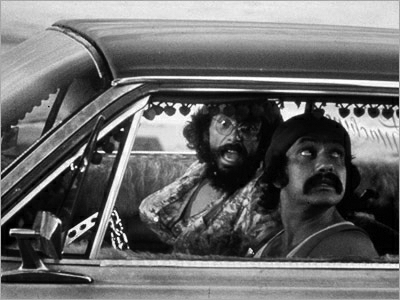Is This Any Way to Run a City’s Schools?
Leaked CTU Proposals Won’t Do Anything to Improve Schools’ Poor Performance
California Union Bosses, Marijuana Dealers Embark on Joint Effort
From 1999 through 2009, the U.S. population increased by nearly 28 million. And, as dietary scolds often remind us, the average American is eating more all the time.

Nevertheless, the number of U.S. grocery workers under union monopoly-bargaining control fell sharply over the past decade — from 666,000 to 531,000, or 20%, according to the respected, Washington, D.C.-based Bureau of National Affairs.
How could the empire of grocery (overwhelmingly, United Food and Commercial Workers, or UFCW) union bosses shrink so much, when the demand for food keeps growing and, obviously, Americans can’t go abroad to buy their food?
UFCW barons’ problem is that the strait-jacket work rules and inefficient benefit plans they foist on grocery employees and their employers, and the counterproductive “hate-the-boss” mentality they foment, have rendered thousands of unionized grocery stores uncompetitive in their markets.
Over the past decade, union-free grocery chains that typically offer their employees benefits superior to the retail industry norm and ample opportunities for advancement have taken away more and more of unionized groceries’ market share.
Big Labor Cash Cow Grazing in the Weed?
This is true even in Big Labor stronghold states like California.
UFCW union kingpins could try to deal with this problem of theirs by changing their ways. For example, they could offer to negotiate new contracts that get rid of productivity-killing work rules. More generally, they could focus on workers’ issues, instead of spending most of their time playing politics with forced union dues. But so far they haven’t.
Instead, today UFCW union organizers are turning more and more to potential forced dues-paying workers outside the grocery industry. And Golden State UFCW officials are especially notable for their creativity.
This month, the UFCW union’s San Jose-based Local 5 is expected to give its official endorsement to the so-called “Control and Tax Cannabis” initiative, which would make possession and use of marijuana for “recreational” purposes legal in California. (“Medical” uses of pot have already been permitted under state law for 14 years.)
Local 5 bosses have apparently decided to back the cannabis initiative, and spend substantial sums of California grocery workers’ forced union dues and fees to help pass it, as part of a quid pro quo with marijuana advocates and medical cannabis dispensaries.
To secure UFCW bosses’ forced dues-funded support for the initiative, which will greatly increase the market for the cannabis dispensaries’ product, dispensary executives have agreed, effectively, to help union organizers acquire monopoly-bargaining privileges over their employees.
‘Forced Dues-Crazed Abandon’
The Right to Work of thousands of “bud tenders,” who purportedly help medical marijuana users select the correct strain for their ailment, and other industry workers may go “up in smoke” as a consequence of the tacitly-acknowledged deal.
National Right to Work Committee Vice President Doug Stafford commented:
“As a part-time musician, over the years I have seen quite a few people acting erratically under the influence of unknown substances.
“I must say, though, union officials’ behavior when they identify a large new potential source of forced dues and fees is especially unsettling to me. When they are in a state of forced dues-crazed abandon, you never know what union bosses will do.
“In California, evidently, it turns out what they will do is endorse an initiative to make it legal to party with pot, as long as you are 21 or over.
“As a single-issue organization, the Right to Work Committee is of course taking no position on the cannabis initiative.
“However, Right to Work supporters suspect that there are many employees who must pay dues to Local 5 to keep their jobs, and oppose legalizing recreational marijuana. And we think it’s wrong for Local 5 chief Ron Lind and his lieutenants to use such workers’ forced dues to back a cause they oppose.”

Leaked CTU Proposals Won’t Do Anything to Improve Schools’ Poor Performance

Wherever Big Labor wields the power to collect forced union dues, union bosses funnel a large share of the confiscated money into efforts to elect and reelect business-bashing politicians. Employment growth tends to lag as a consequence.

Members Insist They Keep Pro-Right to Work Campaign Promises